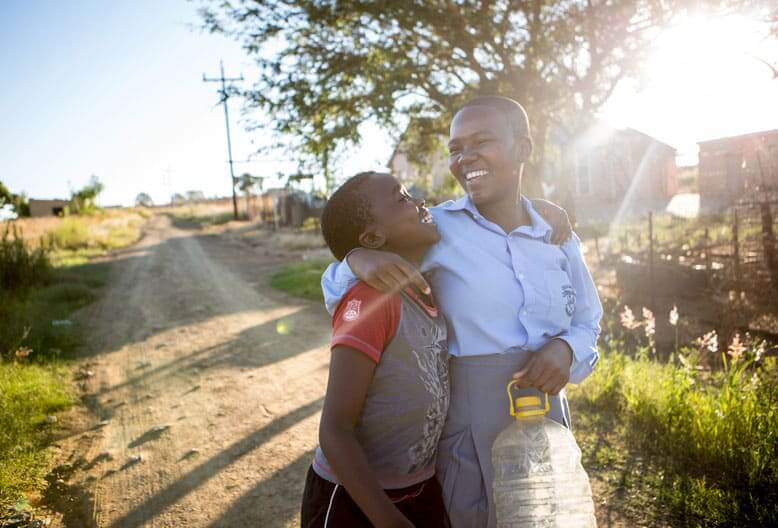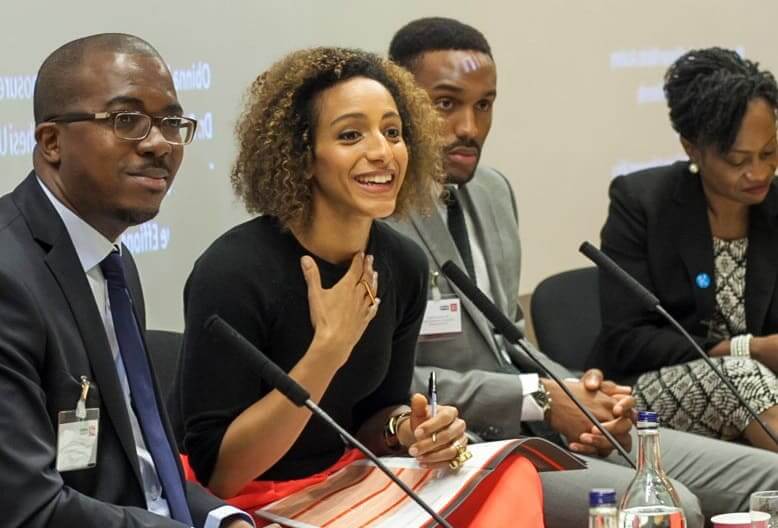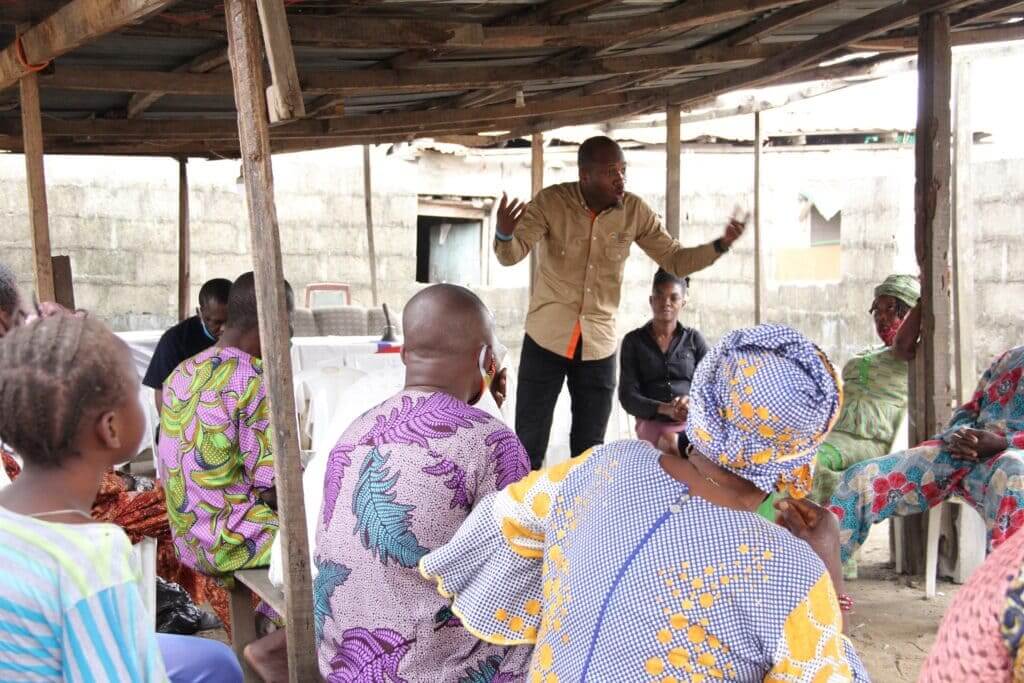3rd Edition of the One Planet Summit: Africa’s Pledge (Nairobi, 14 March 2019)
Responding to the invitation of President Kenyatta of Kenya, President Macron of France, UN Secretary-General Guterres and President Kim of the World Bank Group, the coalitions of the “One Planet Summit” will meet in Nairobi, Kenya on March 14th.
Building on previous One Planet events (Paris, December 2017 and New York, September 2018), this third edition of the One Planet Summit will gather committed African leaders, entrepreneurs, donors, international organizations and other stakeholders coming from all parts of societies and institutions. The objective is to accelerate and step-up climate action to deliver high-impact outcomes for African populations and to protect biodiversity in Africa.
Youth Shaping Sustainable Food Systems Workshop in Eastern Africa
25th to 29th March 2019
Mbale, Uganda from
Countries of focus: DRC, Kenya, Uganda, Rwanda, and Tanzania
Funding type: Fully funded
Most countries in Africa are undergoing rapid urbanization bringing with it fresh opportunities as well as creating new challenges arising from the transition.
From the perspective of urban and peri-urban agriculture, classic practices are changing too due to a combination of socio-economic factors such as shifting consumer and market preferences, access to new tools, digitalization, constraints on land and water resources as well as decreasing interest in farming by the young generation. Effective and efficient solutions for increasing sustainable agriculture at city region scale are needed to ensure access to nutritious food, safeguard natural resources and ensure viable opportunities for the next generation of farmers in the agri-food sector.
A key goal must be to increase capacities of young progressive farmers in sustainable agriculture practices that can lead to sustainable development and stronger rural and urban linkages. This can start new partnerships at the local level, promote systematic youth farmer oriented training on good agricultural practices, new urban markets opportunities and peer-to-peer exchange for young upcoming farmers to learn from each other while improving access to services, and opening new possibilities for resource mobilization.
YPARD is collaborating with FAO and Rikolto to organize this interactive workshop where young farmers can interact, learn and share best practices, with a focus strengthening rural and urban linkages for sustainable food and agriculture.
Young people involved in agricultural activities in Uganda, Kenya, DRC, Tanzania and Rwanda can apply to join a training and knowledge sharing workshop that will be held in Mbale, Uganda from 25th to 29th March 2019. This is a training and Knowledge Sharing Workshop for Young Progressive Farmers to Promote the Urban Food Agenda in East Africa. Apply before 12th February 2019.
Fifth session of the Africa Regional Forum on Sustainable Development
Theme: “Empowering people and ensuring inclusiveness and equality”
TUESDAY, APRIL 16, 2019 TO THURSDAY, APRIL 18, 2019
Venue: Morocco
Introduction
The Africa Regional Forum on Sustainable Development (ARFSD), convened by the United Nations Economic Commission for Africa (ECA) in collaboration with regional organizations and the United Nations System, seeks to advance the implementation of the Sustainable Development Goals of the 2030 Agenda and the goals set out in Africa’s Agenda 2063. The Forum does so by providing a multi-stakeholder platform for follow-up and review of implementation progress and challenges, strengthening learning and advocating effective policy measures and actions to achieve the goals of the two agendas. In so doing the Regional forum makes important contributions to strengthening multi-stakeholder engagement and synergies, and thus promoting concerted efforts to implement and achieve the development goals of the two mutually reinforcing agendas. Four sessions of the Forum have been held since 2015.
The Fifth (2019) session of the Africa Regional Forum on Sustainable Development (ARFSD 5) will be held under the theme “Empowering people and ensuring inclusiveness and equality.” It will carry out in-depth review of SDG 4 (quality education), SDG 8 (decent work and economic growth), SDG 10 (reduced inequalities), SDG 13 (climate action), and SDG 16 (peace, justice and strong institutions) and the corresponding goals of Agenda 2063. The forum will also undertake an in-depth review of SDG 17 (partnerships for the Goals) to address challenges and strengthen partnerships to develop capacity, harness science and technologies and mobilize and scale up finance to implement the goals.
The outcomes of ARFSD 5 will (i) feed into the 2019 session of the High-level Political Forum on Sustainable Development (HLPF) under the auspices of ECOSOC, which will be held in July 2019 focusing on the same theme and selected SDGs; and (ii) be used for policy advocacy, formulation and implementation at regional and national levels. Moreover, 2019 is of special significance given that for first time the HLPF under the auspices of the UN General Assembly (SDG or Leaders’ Summit) will be held in September 2019.The ARFSD therefore offers opportunity for Africa to articulate its inputs to the Leaders’ summit as well. Such inputs will include Africa’s specific challenges in the implementation of the SDGs, gaps and levers of change to accelerate implementation.
International Youth Diplomacy Conference
Theme: Investing in entrepreneurship and technology innovations; A curb to youth unemployment
July 2019
Venue: Accra Ghana
10th IWA International Symposium on Waste Management Problems in Agro–Industries
From 26-28 June 2019
Venue: Rhodes, Greece,
The increasing pace of complex environmental problems generated by a number of major industries, such as textile, leather, pulp and paper, food, brewery, pesticide and other agro-industries necessitates urgent and effective solutions based upon available scientific information and experience. Sewage treatment in rural area and flush-out of pollutants from agricultural area has also been attracting attention. Management of wastes from agro-industries was first addressed in an international forum in the “1st International Symposium on Waste Management Problems in Agro-Industries” held in Istanbul, Turkey in 1989. The success of event, with its high quality contributions and the interest of participants from all over the world, established it as a regular IAWQ symposium.
Following the success of the first two held in Turkey, the third in Mexico and the fourth in Turkey, the fifth international symposium was held in Japan, in 2001 after the merger of IAWQ and IWSA to IWA and the sixth IWA specialty symposium was organized in Korea in 2003 primarily addressing “Strong Nitrogenous and Agro-Wastewater”. The Seventh International IWA Symposium on “Waste Management Problems in Agro-Industries” was held in The Netherlands in 2006. The eighth symposium in the series was organized in Çeşme-İzmir, Turkey in 2011.
The 9th was held in Kochi, Japan in 2014. The tenth symposium (AGRO’2019) in the series is proposed to be organized in Rhodes, Greece, in 26-28 June 2019. The purpose of AGRO’2019 is to provide a forum for discussion of as many aspects as possible within the context of the symposium title. “International Symposium on Waste Management Problems in Agro-Industries” has been held with IWA support beginning 1989 and previous 9 symposiums were organized under the same umbrella. It will be 30th year of the symposium with the 10th AGRO’2019. The success of the symposium is evident in each one attracting scholars from all over the World. So the symposium series has become one of the well-known IWA activity in the field.
Topics
- Biological treatment of wastewaters and wastes
- Chemical treatment of wastewaters and wastes
- Nutrient removal and recovery
- Resources recovery and reuse
- Advanced treatment processes and innovative technological applications
- Modelling and design interaction
- Sludge stabilization, utilization and disposal
- Treatment and use of waste from stock breeding
- Run-off and control of pollutants from agricultural areas
- Innovative water and waste management system for agricultural area
- The climate change mitigation and adaptation in agro-industries
- Soil pollution and management
For aditional inquiries about registration please contact the Symposium Secretariat:
Symposium Secretariat
Ms. Gözde Özbayram
E-mail: agro2019@itu.edu.tr
ICSD 2019 : 7th International Conference on Sustainable Development,
From 4 – 5 September 2019
Venue: Rome, Italy
European Center of Sustainable Development in collaboration with CIT University will organize the 7th ICSD 2019 International Conference on Sustainable Development, with particular focus on Environmental, Economic and Socio-Cultural Sustainability.
The 7th ICSD 2019 will be an excellent opportunity to share your ideas and research findings relevant to the Sustainability Science, through the European network of academics.
This interdisciplinary forum is for scholars, teachers, and practitioners from any professional discipline who share an interest in—and concern for— sustainability in an holistic perspective, where environmental, cultural, economic and social concerns intersect.
Papers will be published in Open Access EJSD Journal (Thompson Reuters) and Proceedings.
Link: For more details visit here the ICSD Conference website
2nd All Africa Postharvest Congress and Exhibition
Theme: Postharvest Loss Reduction and Agro-processing: Drivers of Agricultural Transformation in Africa
Venue: African Union Headquarters, Addis Ababa
Dates: 28th October to 1st November, 2019
BACKGROUND AND RATIONALE
Africa has remained the most food insecure continent in the world, with approximately one in four people are undernourished. Over the years most African governments have focused on increasing production to meet the food and nutrition needs of the ever rising population which is estimated to reach 2.5 billion by the year 2050. Indeed most African governments have focused on investments and policy interventions geared to increased food production. Most of the strategies for food and nutrition security (FNS) have been focused more on extensification (putting more land to production) and intensification (increased use of agro-inputs). However, these approaches to FNS are challenged by the limited and inelastic production resources (including land, water, energy, agro-inputs) and their unsustainability.
Historical over-emphasis on increased agricultural production without complementary interventions to ensure proper utilization of the food produced has contributed to the reported increase in postharvest food loss and waste over the years. Global food losses and waste is estimated to amount to 1.3 billion metric tonnes (MT), equivalent to over 30% of the total food produced for human consumption. Global food wastage could feed up to 1.6 billion people annually. In sub-Saharan Africa alone, the total quantitative food loss has been estimated to be over 100 million MT/year. For grains alone, the value of postharvest losses is estimated to equate to approximately USD 4 billion/year (at 2007 prices), which could meet the annual food requirements of about 48 million people. The value of food loss exceeds the annual value of grain imports into Africa. These losses exacerbate food insecurity and have negative impacts on the environment through wasting precious land, water, farm inputs and energy used in producing food that is not consumed. In addition, postharvest losses reduce income to farmers and contribute to higher food prices.
It is in recognition of these challenges and opportunities that the African Union Heads of State and Government included in the 2014 Malabo Declaration a call to reduce postharvest losses in Africa by 50 percent by year 2025. In 2015 at the United Nations General Assembly, governments around the world approved the Sustainable Development Goals (SDGs), which includes SDG 12.3 that calls for halving per capita global food waste at the retail and consumer levels and reducing food losses along production and supply chains (including postharvest losses) by 2030. Thus, the Malabo Declaration is supportive of SDG Target 12.3
Acknowledging the urgent need to address this global challenge, the University of Nairobi and a consortium of partners led by the Rockefeller Foundation, in conjunction with the World Food Preservation Center® LLC (WFPC) organized the 1st All Africa Postharvest Congress and Exhibition (AAPHCE) from 28th to 31st March 2017, in Nairobi, Kenya,. The Congress, whose theme was ‘Reducing Food Losses and Waste: Sustainable Solutions for Africa’, sought to contribute to the Theme: Postharvest Loss Reduction and Agro-processing: Drivers of Agricultural Transformation in Africa Venue: African Union Headquarters, Addis Ababa Dates: 28th October to 1st November, 2019 2 continental and global agenda of reducing postharvest food loss and waste (FLW). Following recommendations of the 1 st AAPHCE presented at AU-FAO Regional Postharvest Loss Reduction Workshop held on 26th July 2018 and consultation with stakeholders, it was agreed that the AAPHCE event be continued on biennial basis. It was also agreed that the Postharvest Congress be institutionalized within the African Union structures to ensure the continuity and mainstreaming into existing continental programs on postharvest loss reduction.
It is in this context that the AUC has taken the lead to host the 2nd All Africa Postharvest Congress and Exhibition. The congress secretariat hosted by the AUC is working in partnership with the University of Nairobi, Stellenbosch University, Jomo Kenyatta University of Agriculture & Technology, the UN-Food and Agriculture Organization (FAO), Alliance for a Green Revolution in Africa (AGRA), Eastern Africa Grain Council (EAGC), Rockefeller Foundation among others. The AUC is calling upon other development partners, universities, research institutions, private sector, civil society, farmer organizations and others to join hands in this initiative to contribute to the continental and global agenda of postharvest loss reduction.
The abstracts submission and registration can be made on the online platform at: www.au.int
Conference on Land Policy in Africa, CLPA-2019
Theme: “Winning the fight against Corruption in the Land Sector: Sustainable Pathway for Africa’s Transformation”
MONDAY, NOVEMBER 4, 2019 TO FRIDAY, NOVEMBER 8, 2019
Venue: Abidjan, Cote d’Ivoire
The 3rd edition of the Conference on Land Policy in Africa will be organized by the African Land Policy Centre which is a joint initiative of the African Union Commission, the United Nations Economic Commission for Africa, and the African Development Bank. The Conference is a policy and learning event whose goal is to deepen capacity for land policy in Africa through improved access to knowledge and information on land policy development and implementation. This Conference follows the second Conference held in November 2017 in Addis Ababa, Ethiopia that was attended by close to 450 participants.
The Conference scheduled for November 2019, dubbed CLPA-2019, will be held under the theme: Winning the fight against Corruption in the Land Sector: Sustainable Pathway for Africa’s Transformation. This theme supports the Declaration of 2018 by the African Union as the Anti-Corruption Year under the theme “Winning the Fight against Corruption: A Sustainable Path to Africa’s Transformation”. The format of the Conference will include masterclasses, plenary and parallel sessions, side events, exhibitions, and the use of social media to reach a broader audience.
For more information, please visit https://www.uneca.org/alpc and/or contact eca-africalandconference@un.org
UN Climate Summit 2019
The impacts of climate change are being felt everywhere and are having very real consequences on people’s lives. Climate change is disrupting national economies, costing us dearly today and even more tomorrow. But there is a growing recognition that affordable, scalable solutions are available now that will enable us all to leapfrog to cleaner, more resilient economies.
The Paris Agreement adopted in 2015, was an essential step to address climate change. It has the central goal of keeping global average temperature rise this century to well below 2 degrees Celsius above pre-industrial levels and to as close as possible to 1.5 degrees Celsius.
The 2015 Paris Agreement marked a historic turning point. World leaders from across the globe clinched a new, universal agreement under the umbrella of the UN Framework Convention on Climate Change.
This December at the UN Climate Change Conference COP24 in Poland, governments are set to agree the implementation guidelines of the Paris Agreement, thereby unleashing its full potential.
As of November 2018, 184 states and the European Union have joined the Agreement, which entered into force with record speed.
I want to hear about how we are going to stop the increase in emissions by 2020, and dramatically reduce emissions to reach net-zero emissions by mid-century
Countries have designed their own national climate action plans under the Paris Agreement, but the sum of these plans are not sufficient to limit climate change to well below 2°C. It is critical for countries strengthen their strategies to reach the targets set in the Paris Agreement, and raise ambition to tackle climate change.
To support efforts to implement the Paris Agreement and to increase ambition and climate action, UN Secretary-General António Guterres will bring world leaders, from government, finance, business, and civil society to the Climate Summit on 23 September 2019. He has asked these leaders to bring bold announcements and actions to the Summit that will reduce emissions, strengthen climate resilience, and mobilize political will for an ambitious and meaningful agreement in Paris in December 2015.
The Summit will come exactly one year before countries will have to enhance their national climate pledges under the Paris Agreement.
The Secretary-General said, “Only a significantly higher level of ambition will do. To that end, the Summit will focus on areas that go to the heart of the problem – the sectors that create the most emissions and the areas where building resilience will make the biggest difference”.
“We will bring together players from the real economy and real politics, including representatives of trillions of dollars of assets, both public and private.”
The Global Parliamentary Summit against Hunger and Malnutrition calls for political commitments
More than two hundred parliamentary representatives from different countries all over the world have poliiclosed the first Global Parliamentary Summit against Hunger and Malnutrition in Madrid. This event reaffirmed the political commitment to ensure that everybody has access to sufficient and quality food.
821 million people are undernourished, whilst one in every eight adults is obese and 38 million children under the age of five are overweight. In light of this situation, a single voice has been heard in the meeting rooms and in the plenary session at the Spanish Senate, which hosted this first summit, to express the need and will to work together to relieve the increase of hunger.
The Spanish Agency for International Development Cooperation (AECID), the Spanish Parliament and the United Nations Food and Agriculture Organisations (FAO), alongside the Parliamentary Front against Hunger in Latin America and the Caribbean were the drivers of this initiative that concluded with the firm aim to achieve Zero Hunger and make the right to a sufficient diet a reality for all.
The legislators undertook to encourage collaboration between countries and regions in favour of Zero Hunger. They were also urged to support the production and consumption of healthy foods, as well as to promote education and food and nutritional information with the aim of reducing the obesity that leads to non-communicable diseases and that places an enormous burden on health systems and public resources.
Academia crucial in articulating the aspirations of a hunger free Africa
Unlocking the potential of the youth is key to transform Africa’s agriculture
FAO Representative in Kenya, Gabriel Rugalema addressing participants of the RUFORUM 2018 @FAO/Abebe Banjaw
29 October 2018, Nairobi – The Food and Agriculture Organization of the United Nations (FAO) called upon leaders of the academia to double their effort to achieve Africa’s aspirations to be a hunger-free continent by 2025 through knowledge generation, quality education provision, policy advice and innovation that can address the challenges of the grassroots.




